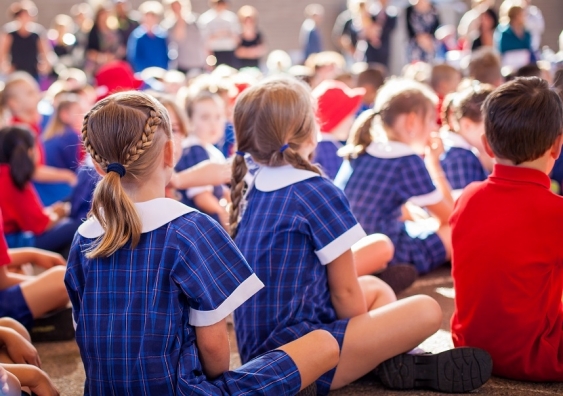It's time for a bipartisan approach to education
Ahead of a UNSW panel discussion about the impact of inequality on a child's education, Adrian Piccoli and Jihad Dib reframe the debate about Australian education.
Ahead of a UNSW panel discussion about the impact of inequality on a child's education, Adrian Piccoli and Jihad Dib reframe the debate about Australian education.

OPINION: At a time of increasingly partisan views, it is unusual for two people from opposite sides of politics to jointly pen an editorial about anything.
But surely, the unfinished business of giving every Australian child an equal opportunity to excel at school is a shared, unifying ambition. Achieving it demands jettisoning partisan politics to concentrate on what we need to do together to ensure that every child can experience the highest quality education, irrespective of who their parents are, where they live or the school they attend.
The educational inequality that persists in Australia is intrinsically linked to income inequality. We talk a lot about the exciting future for children in highly-specialised areas of education like quantum computing, artificial intelligence and robotics. But there are still far too many children who do not enjoy basic educational rights: a sound foundation in literacy and numeracy, growing up with a sense of purpose, belief in their potential and a balanced sense of wellbeing.
These children often struggle to get to the starting line of education, let alone being able to look forward to the job opportunities offered by maths, science and the humanities.
Supporting schools and communities
Too many children turn up to school with an empty stomach or lacking the psychological and emotional composure that students need to get through the day. We can both tell countless stories of schools and communities who try to level the playing field. But for many, it’s not possible on their own.
That’s a problem for the children affected, for our economic productivity and, importantly, for the social cohesion and egalitarianism Australians pride themselves on.
We must create a uniquely Australian education system that ensures students achieve academic excellence but don’t lose the joy of learning.
We also need to debate what we want students to achieve at the end of their schooling. With all the commentary about Australia’s performance compared with countries such as Singapore and South Korea, are we prepared to do what they do so we can achieve similar results? We don’t think so.
The huge pressure on students in some of those countries is not something we want replicated here. That’s why we must create a uniquely Australian education system that ensures our students achieve academic excellence but don’t lose the joy of learning, of being a child, of being curious and critical, of being rebellious, of developing social skills, and of being a well-balanced individual.
We know the quality of teaching and the impact of individual teachers has the most significant impact on children’s performance at school. We can all cast our minds back to our own teachers and rattle off the great ones, as well as those who did little to help us at school. It shouldn’t be like that. Having a great teacher can’t be about pot luck.
Teaching training
We still have a significant problem with the distribution of teachers across this state and an inconsistent approach to the way we prepare them for the coalface. We have an oversupply of teachers in suburbs and towns where the performance of students is already high and a shortage in the towns and suburbs that most need experienced and highly-skilled teachers. This is not an easy problem to solve but one we cannot ignore. It requires a uniquely Australian solution.
We can’t just identify problems without creating solutions. But when we are guided by the principle that education has the power to change the world and to provide opportunities for a better society, our starting point is strong.
Education is complex and will not conform to a one-size-fits-all solution. We need the passion, courage and conviction of students, parents, teachers, schools and politicians to address these issues head on. As a society, we need to be willing to stand up, put politics and vested interests aside and make the big calls. Why? Because our children are worth it.
Adrian Piccoli is Honorary Professor of Practice and Director of the Gonski Institute for Education at UNSW Sydney, and a former NSW Education Minister. Jihad Dib is the NSW Shadow Minister for Education and the Labor Member for Lakemba. Both will be part of UNSW’s panel discussion ‘Education and Equality: Unfinished Business?’ in Sydney on Monday, 30 October.